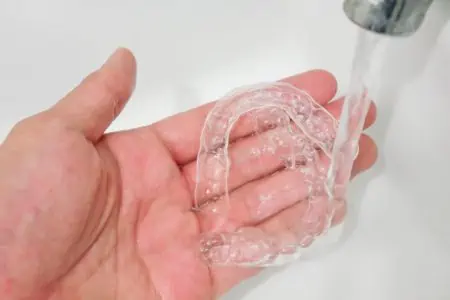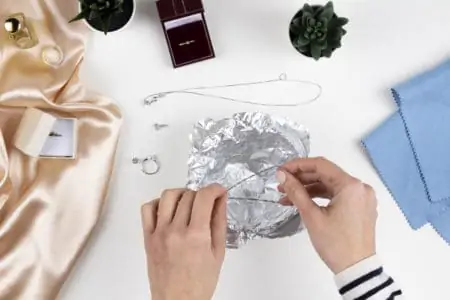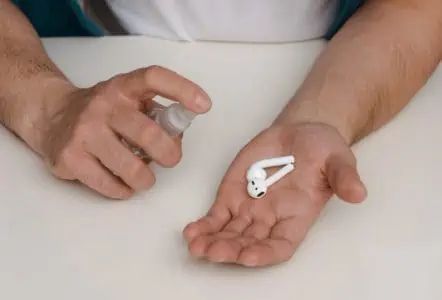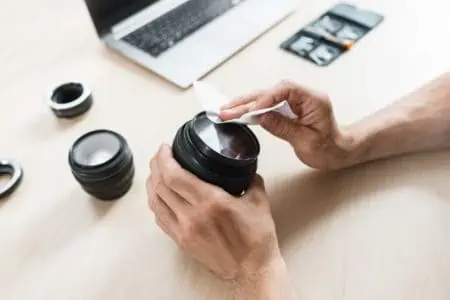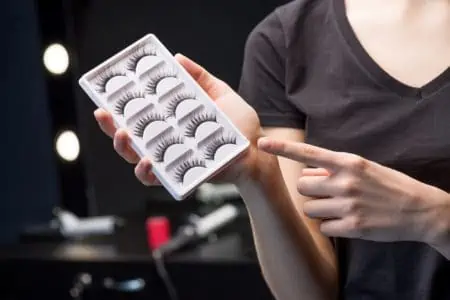When you get a mouthguard, you don’t often get cleaning instructions alongside it. Unfortunately, it can get dirty and smelly if you don’t clean it often. The next time you put it in your mouth, you’re met with an awful taste.
We’ll show you multiple ways to clean your mouthguard, using both store-bought products and natural methods. If it’s been a while since your last clean, we’ll also show you how to deep clean your mouth guard.
Keep reading for the best tips for a super hygienic mouthguard or dental guard.
Key Takeaways
- Clean your mouthguard after every use to prevent bacteria, yeast, and mold buildup.
- Use toothpaste, soap and water, or mouthwash to clean your mouthguard with a soft-bristled toothbrush.
- For natural cleaning methods, try hydrogen peroxide or a vinegar solution.
- Deep clean your mouthguard using dental cleaning tablets or mouthguard cleaner, and replace it every 1-5 years.
How Often to Clean Night Guard
We recommend cleaning your night guard, mouth guard, or bite guard after every use.
In the morning, make it part of your daily routine. Since it’s been in your mouth for hours, food and plaque easily build up in your night guard, even if you brushed your teeth before bed. Also, your mouth guard can breed dangerous bacteria, yeast, and mold, which can make you sick (1).
If you use a mouth guard for sports, clean it as soon as possible so that your saliva doesn’t sit in it for too long.
How to Clean a Mouth Guard
Since you’ll be cleaning it after each use, you need to find the best method for you. Here are three options to choose from using store-bought products: toothpaste, soap, or mouth wash.
With Toothpaste
- Time: 2 minutes
- Difficulty: Easy
What You’ll Need
- Soft-bristled toothbrush
- Non-abrasive toothpaste
- Rinse: Rinse the mouth guard in cool water.
- Apply toothpaste: Put a little toothpaste on the toothbrush. It’s best to have a toothbrush just for cleaning your mouthguard, one that nobody else in the family uses.
- Brush: Gently brush the mouthguard using the same techniques you’d use to clean your teeth. Get in all the individual nooks.
- Rinse and dry: Rinse the mouthguard under cool water and let it air dry.
With Soap and Water
- Time: 3 minutes
- Difficulty: Easy
What You’ll Need
- Mild, alcohol-free soap
- Soft-bristled toothbrush
- Rinse: Rinse the mouth guard with cool water.
- Apply soap: Use your hands or the soap pump to apply soap directly to the mouthguard.
- Brush: Using the toothbrush, gently scrub the mouth guard to suds up the soap.
- Rinse: After about a minute of brushing, rinse the mouth guard in cool water.
- Dry: Let the mouth guard air dry.
With Mouth Wash
- Time: 35 minutes
- Difficulty: Easy
What You’ll Need
- Alcohol-free mouthwash
- Water
- Glass
- Rinse: Rinse the mouth guard in cool water.
- Prepare a glass: Fill a glass ¾ full with cool water. Add a capful of mouthwash.
- Soak: Soak the mouth guard in the solution for 30 minutes.
- Rinse: Rinse the mouth guard with cool water.
- Dry: Air dry the mouthguard.
If you have a silicone sports mouth guard, this is a great option you can do when you get home from your game.
How to Clean a Night Guard Naturally
The above methods are super handy because they use things you already have in your bathroom. But if you want a more natural cleaner, we have two more options for you.
With Hydrogen Peroxide
- Time: 35 minutes
- Difficulty: Easy
What You’ll Need
- Hydrogen peroxide
- Water
- Glass
- Rinse: Rinse the mouth guard in cool water.
- Prepare a glass: Make a 1:1 solution of hydrogen peroxide and water in a glass.
- Soak: Soak the mouth guard in the solution for 30 minutes.
- Rinse: Rinse the mouth guard with cool water.
- Dry: Air dry the mouthguard.
Don’t Soak It For Too Long
Set a timer on your phone, so you don’t forget to remove the mouth guard from the mixture. If you soak it too long, the hydrogen peroxide can damage the mouth guard.
With Vinegar
- Time: 20 minutes
- Difficulty: Easy
What You’ll Need
- Distilled white vinegar
- Water
- Glass
- Soft-bristled toothbrush
- Rinse: Rinse the mouth guard in cool water.
- Prepare a glass: Mix a 1:3 ratio of distilled white vinegar and water in a glass. This solution is excellent for removing white deposits and mold.
- Soak: Soak the mouth guard in the mixture for 15 minutes.
- Scrub: Scrub the loosened residue away using a soft-bristled toothbrush. Ideally, this is one you use only for cleaning your mouthguard and not for brushing your teeth.
- Rinse: Rinse again in cool water.
- Dry: Air dry the mouth guard.
With Baking Soda and Vinegar
- Time: 20 minutes
- Difficulty: Easy
What You’ll Need
- Distilled white vinegar
- Baking soda
- Water
- Glass
- Soft-bristled toothbrush
- Rinse: Rinse the mouth guard in cool water.
- Prepare a glass: Mix together a 1:3 ratio of distilled white vinegar and water in a glass. Add one tablespoon of baking soda. As the above method, this will remove white deposits and mold, but the baking soda provides extra cleaning power. This can also help scrub off dirt and build-up, while deoderizing the mouth guard.
- Soak: Soak the mouth guard for 15 minutes.
- Scrub: Use the soft-bristled toothbrush to clean the mouthguard well.
- Rinse: Rinse the mouth guard in cool water.
- Dry: Air dry the mouth guard.
How to Deep Clean a Mouth Guard
The above methods are great for daily cleaning. But if you’ve never cleaned your mouth guard, or it’s been a while, you will need to deep clean it. You should also deep clean your mouth guard after being sick or once a month to remove stubborn dirt, debris, and bacteria.
We’ll show you how to deep clean your mouth guard using a denture cleaner. Our instructions will also include cleaning a mouth guard case, which can get pretty gross, too.
- Time: 25 minutes
- Difficulty: Easy
What You’ll Need
- Dental cleaning tablets or mouth guard cleaner (such as Retainer Brite)
- Glass
- Water
- Dish soap
- Cloth or sponge
- Dish towel (optional)
1. Rinse the Mouth Guard
Before you get started, give your mouth guard a good rinse with cool water to remove surface-level dirt and deposits.
2. Prepare the Glass
The instructions may vary depending on the brand of dental cleaning tablets you choose. Always read the manufacturer’s advice before getting started. In general, you will fill a glass with warm water and place a tablet into the cup.
3. Soak the Mouthguard
Place the mouthguard into the cup and soak for as long as the brand suggests. This may be between 5-30 minutes but always check with the instructions.
4. Rinse Thoroughly
Remove the mouthguard from the cup and rinse it well with cool water. You don’t want any tablet residue on the mouthguard.
5. Air Dry
Leave the mouthguard to air dry.
6. Fill a Sink
Now it’s time to clean the case. You can do this while your mouthguard is soaking to save you time. Fill a sink with warm soapy water.
7. Clean the Case
Just as you clean dishes, clean your mouth guard case. Soak it in the warm soapy water for a couple of minutes before scrubbing it clean with a cloth or sponge. Make sure you get into all the nooks and crannies.
8. Dry
Let the case air dry. If you want to speed the process up, you can wipe it dry with a dish towel.
Tips For Cleaning Night Guard Discoloration
When you wear your night guard often, it can yellow. It’s not always pleasant, so we’ll share some hacks to eliminate some of these stubborn yellow stains.
Firstly, regular deep cleaning can help. Dental cleaning tablets can prevent discoloration, so we recommend using those monthly, even if you clean your mouth guard daily using other methods.
Another option is using the white vinegar hack. Vinegar is great at breaking down stains and whitening items. So use that either daily or weekly to clean your mouthguard.
The best tip, though, is to clean your night guard after every single use. Regular cleaning is the best thing for keeping discoloration at bay.
How to Store a Mouth Guard
When you’re not using your mouth guard, it’s important to keep it in a case. After you’ve cleaned it and let it air dry, place it in the case so it’s protected and can stay clean. Make sure to clean the case regularly.
We recommend choosing a vented case. If there is any moisture in the case, the vents can help air it out, so it doesn’t lead to mold and mildew growth.
The Mrs. Odonto retainer case is a good example and has a ventilated opening that keeps moisture away.
When to Replace a Night Guard
Night guards and mouth guards don’t last forever. We recommend replacing them every 1-5 years. That’s a pretty vast difference, so we’ll explain. If you wear it a couple of times a week, it could last five years. If you wear it every day for hours at a time, replacing it every year is better.
Here are some signs to look out for that will tell your that it’s time to get a new mouth guard:
- It’s cracked: Cracks and breakages are normal. You can sometimes get away with keeping your mouth guard if the scratches and cracks are minor. But it’s time for a new mouth guard if you can see through the crack or breakage.
- It doesn’t fit: If your mouth or teeth has changed shape and the guard is too loose or too tight, get a new one.
- Significantly discolored or smelly: Even with regular cleaning, your mouth guard will eventually have run its course. If your mouth guard smells bad and is discolored (yellow or even moldy) even after cleaning, it’s time for a new one.
